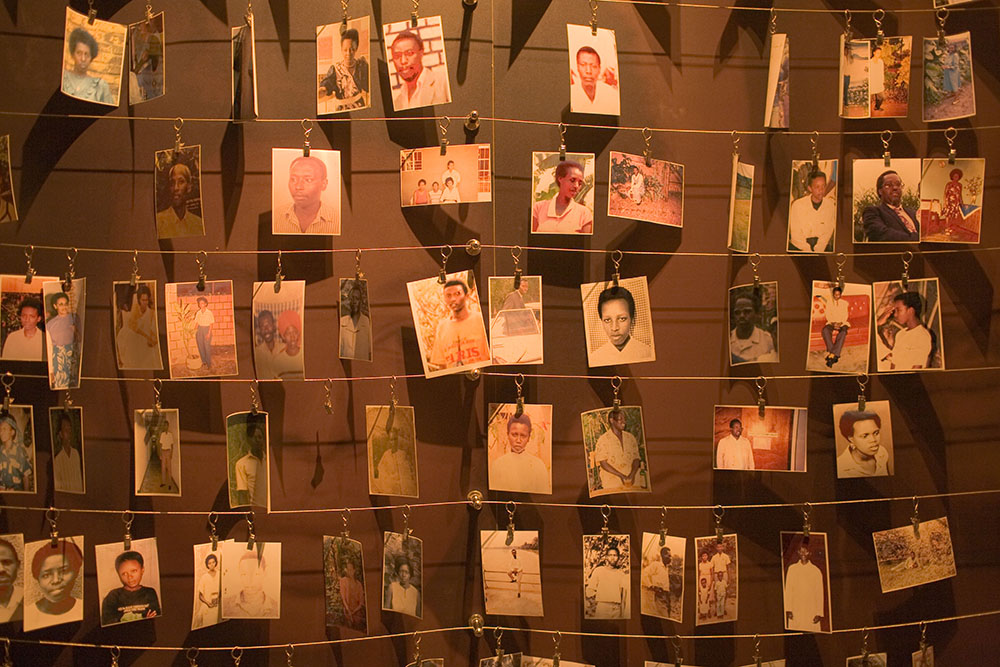Christianity and the Rwandan Genocide

Christianity and the Rwandan Genocide
MTWRFSa 9:00AM - 12:45PM, August Intersession 2021/HNRC 4013H-023-Intersessn
GEAR 130
Questions? Contact John Treat.
Note: An application is no longer required for this course. You may enroll directly through UAConnect.
"After a century of evangelism, we have to begin again because the best catechists, those who filled our churches on Sundays, were the first to go out with machetes in their hands." Bishop Thaddée Nsengiyumva, 1994
This course examines the 1994 Rwanda Genocide in which the Rwandan government and military orchestrated the killings of 800,000 predominantly Tutsi citizens over the course of 100 days. Students will analyze Rwanda's history in the context of the Great Lakes region of central Africa, including the underlying ethnic, political, and religious factors that established the groundwork for genocide. In particular, the class critically evaluates the roles played by the majority Catholic Church and other Christian communities before and during the genocide. At the same time, we will also examine the impact of the U.S., the U.N., and other international actors, the subsequent wars in neighboring Democratic Republic of the Congo, and how the Rwandan case compares to other modern genocides. Finally, the course will examine the nature of reconciliation, religious warrants for and against violence, and Christian identity in the shadow of the Rwanda genocide.
Methodologically, the course unfolds at the intersection of religious studies and history, and students will study both historical and theological texts. Reflecting the interdisciplinary nature of genocide studies, students will also analyze the political, anthropological and sociological dimensions of genocide and post-conflict reconciliation. The course will also enable students to engage the complex nature of postcolonial African identity, including dimensions of gender, race, ethnicity, and citizenship.
|
Course Credit:
About Jay Carney: J.J. (Jay) Ca Dr. Carney's first book, Rwanda Before the Genocide: Catholic Politics and Ethnic Discourse in the Late Colonial Era (Oxford University Press, 2014), won the African Studies Association's Bethwell A. Ogot book prize for best book in East African Studies. More recently, he co-edited The Surprise of Reconciliation in the Catholic Tradition (Paulist, 2018) exploring case studies in Catholic peacebuilding from throughout Christian history. He is currently finishing work on two manuscripts exploring Catholic leadership and politics in modern Uganda: 'For God and My Country': Catholic Leadership in Modern Uganda (Cascade)and Independence and Intimidation: Benedicto Kiwanuka and Catholic Politics in Uganda, 1955-1972 (co-authored with Jonathon L. Earle). Prof. Carney holds degrees from the University of Arkansas-Fayetteville, Duke University Divinity School, and The Catholic University of America. |
 rney is associate professor of church history and global christianity at Creighton
University in Omaha, Nebraska. His research focuses on modern Catholic history and
theology in Africa. He is also interested in the theology of reconciliation, political
theology, and the intersection of sport and theology. At Creighton, he teaches The
Christian Tradition: Global Visions, Sport and Spirituality, African Theology, The
Spirituality of Reconciliation, Christianity and the Rwandan Genocide, and study abroad
classes in East Africa.
rney is associate professor of church history and global christianity at Creighton
University in Omaha, Nebraska. His research focuses on modern Catholic history and
theology in Africa. He is also interested in the theology of reconciliation, political
theology, and the intersection of sport and theology. At Creighton, he teaches The
Christian Tradition: Global Visions, Sport and Spirituality, African Theology, The
Spirituality of Reconciliation, Christianity and the Rwandan Genocide, and study abroad
classes in East Africa.